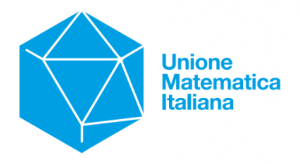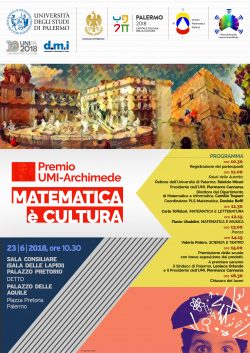The Stampacchia Gold Medal is an international award to mathematicians, who have not passed the age of 35. The award is given in recognition of studies in the field of the Variational Analysis and its applications that have had a strong impact and international recognition. The medal is named in memory of the Italian mathematician Guido Stampacchia (Naples, March 26, 1922 – Paris, April 27, 1978).
The award is sponsored jointly by the Unione Matematica Italiana (UMI) and the Ettore Majorana Foundation and Centre for Scientific Culture (Erice) and is awarded by an international commission composed of eminent mathematicians. Such a committee is appointed by UMI. The award ceremony takes place during the opening ceremony of the International Conference on Variational Analysis and Applications, that is organized every three years at the School of Mathematics “Guido Stampacchia” of the Foundation “Ettore Majorana”.
Notice The “International School of Mathematics «Guido Stampacchia»”, part of the “«Ettore Majorana» Foundation and Centre for Scientific Culture”, and the Unione Matematica Italiana announce the 2018 «Guido Stampacchia» Prize. The prize, consisting in a gold medal, will be awarded for outstanding research in the field of Variational Analysis and Applications to a researcher, whose age is not greater than 35 at the date of December 31, 2017.
Nominations, which should include the motivation at the basis of the nomination and a curriculum vitae of the nominee, must be sent, before March 31st, 2018, to
Commissione Premio Stampacchia
Unione Matematica Italiana
Dipartimento di Matematica
Piazza di Porta San Donato 5
40126 BOLOGNA (ITALY)
The prize will be given during the opening ceremony of the International Conference “Variational Analysis and Applications” in memory of G. Stampacchia, which will be held in Erice (Sicily) at the «Ettore Majorana» Foundation and Centre for Scientific Culture.












